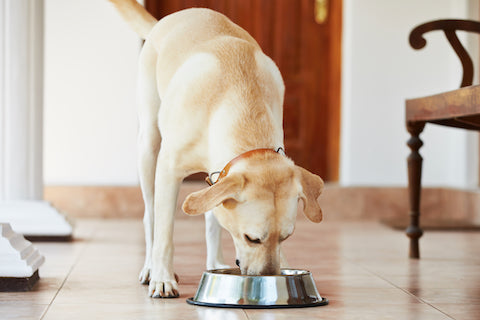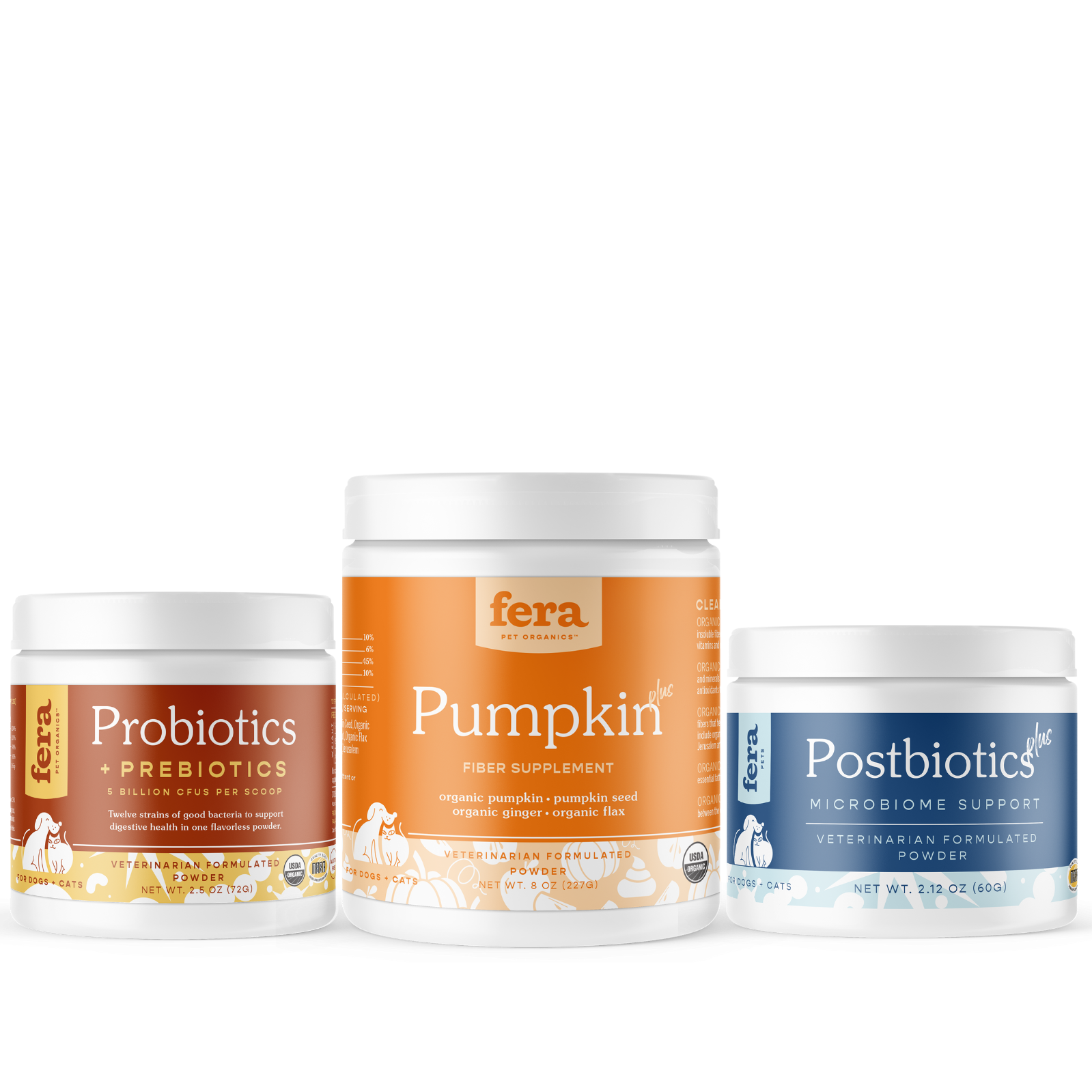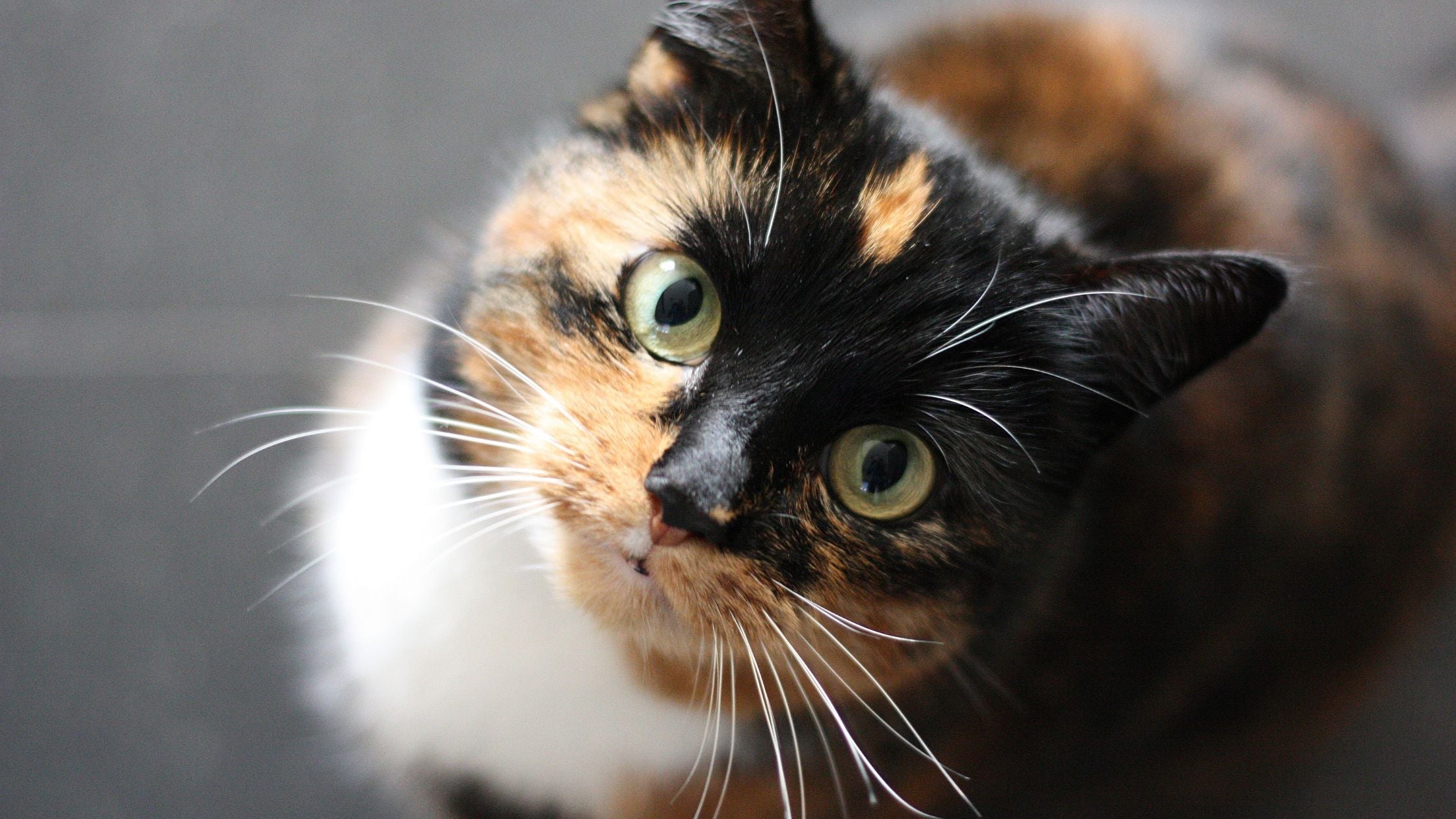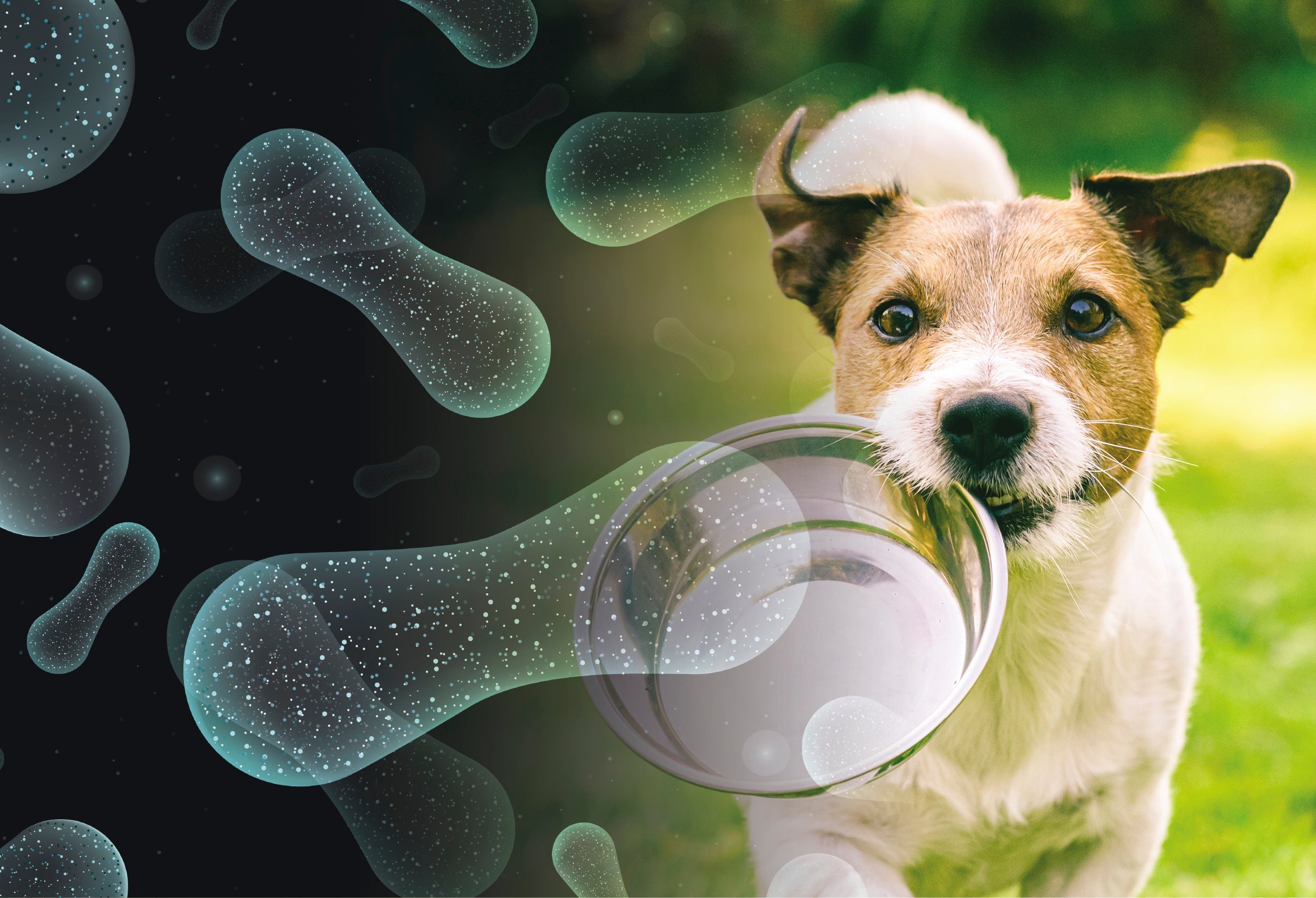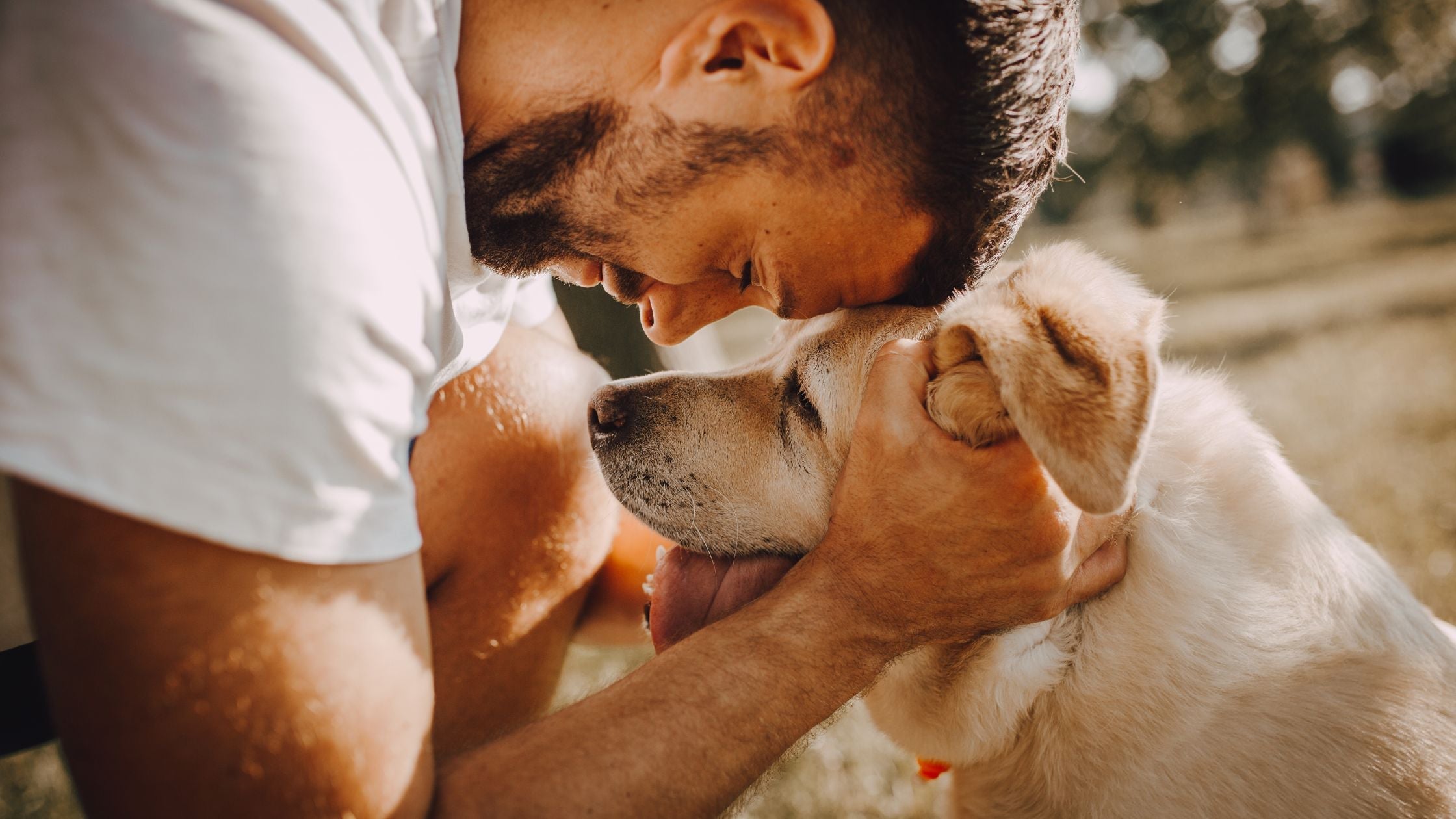15 of the Best Ways to Maintain Your Pet’s Gut Health
Ensure the health and longevity of your pet by maintaining their gut health. It's not just about feeding them well, but also considering factors like hydration, avoiding overfeeding, and even managing their stress levels. Discover our 15 tips to unlock the doors to your pet's optimal gut health.
Maintaining your four-legged friends’ gut health is essential for their overall well-being. Just like in humans, a healthy gut is crucial for proper digestion, nutrient absorption, and a robust immune system. Read on to explore the best ways to promote and maintain your pet's gut health, which can help them live a happier and healthier life.
15 ‘Paw’some Tips for Maintaining Your Pet’s Gut Health
1. High-Quality Nutrition
If proper nutrition is the foundation of good gut health for your pet, then feeding them a well-balanced and high-quality diet is paramount.
Choose pet food with real, wholesome ingredients and minimal fillers or artificial additives. Also, look for options that contain a good balance of proteins, carbohydrates, fats, vitamins, and minerals, tailored to your pet's specific needs.
Of course, as with any kind of diet change, I recommend consulting your veterinarian before introducing new food to your pet. The doctor will be able to point you in the right direction and recommend foods that are best suited to your pet’s breed, age, weight, and more.
2. Probiotics
Although bacteria have garnered a particularly negative reputation for themselves, not all of them are harmful. In fact, good bacteria known as probiotics can help maintain a healthy gut flora. They promote a balanced gut microbiome and aid in the digestion and absorption of nutrients.
You can find probiotic supplements specifically designed for pets or opt for pet foods that include probiotics in their formulations.
3. Prebiotics
Prebiotics are non-digestible fibers that act as food for the beneficial bacteria in your pet's gut. They also help stimulate the growth and activity of these friendly microbes.
If you’d like to introduce prebiotics into your pet’s diet, the most natural way is through foods like sweet potatoes, oats, and bananas. You could also use a pet supplement with both prebiotics and probiotics.
4. Fiber-Rich Foods
Fiber is a must for maintaining your pet’s gut health. It can aid in digestion, prevent constipation, and support the growth of beneficial gut bacteria.
Incorporate fiber-rich foods such as pumpkin, brown rice, and vegetables like broccoli, peas, and carrots to give your companion a boost in fiber. Just be mindful of portion sizes, as excessive fiber intake can lead to digestive issues.
5. Hydration
Drink up! Proper hydration is another key to supporting a healthy gut in pets. Water is essential for the digestion process and helps move food through the digestive tract.
Ensure your pet has access to fresh, clean water at all times to prevent dehydration, which can lead to constipation and other digestive upsets.
6. Avoid Overfeeding
As much as we love to treat our fur babies to their favorite food and snacks, it’s only good to do this in moderation. Overfeeding your pet can lead to digestive problems and obesity.
That’s why it's important to follow feeding guidelines provided by your veterinarian or the pet food manufacturer. You can also avoid overfeeding by measuring your pet's food portions and sticking to a consistent feeding schedule.
7. Rotate Protein Sources
Variety in your pet's diet can be beneficial for gut health. Different protein sources such as chicken, lamb, and beef provide a variety of nutrients and amino acids.
Rotating these protein sources can also help prevent food allergies or sensitivities that may develop with a single protein source over time.
8. Limit Table Scraps
Feeding your pet table scraps is tempting, but it may lead to a slew of digestive issues since human food is often too rich or high in fats for their systems. Some foods can even be toxic to pets including onions, garlic, and grapes. Stick to their regular diet and treats specifically made for pets to help their little tummies perform optimally.
9. Regular Exercise
Physical activity plays a significant role in maintaining your pet's gut and overall health. Not only will exercise help stimulate their digestive system and promote overall well-being, but it’s also a great opportunity for you to play together and grow your bond.
Ensure your pet gets enough exercise through daily walks, playtime, and other activities suitable for their age and breed.
10. Stress Management
Stress is a menace when it comes to your pet's gut health. High amounts of it can lead to gastrointestinal problems and other health issues. Provide a safe and comfortable environment for your pet, and be mindful of any factors that may cause them stress.
Regular play, companionship, and relaxation can help reduce stress and maintain a healthy gut. You can also utilize a natural calming aid to help soothe your furry friend’s nerves.
11. Prevent Parasites
Parasites such as worms can wreak havoc on your pet's digestive system. If you haven’t already, consult with your veterinarian to establish a regular deworming schedule and take preventative measures against parasites such as:
- Removing feces from your yard or other areas your pet frequents
- Performing regular fecal checks with your veterinarian
- Not allowing your pet to drink standing water
12. Regular Vet Check-ups
Regular check-ups with your veterinarian are crucial for monitoring every aspect of your pet’s health, including their gut. They can assess your pet's overall well-being, provide guidance on nutrition, and detect any potential issues early on.
It’s best to schedule health checkups at least once a year, but if you notice changes in your pet's eating habits, stool, or behavior, consult your vet as soon as possible.
13. Avoid Toxins
Be vigilant about keeping your pet away from potential toxins. Some plants, chemicals, and foods can be harmful if ingested. Always store chemicals and potentially dangerous items out of your pet's reach, and keep a watchful eye on your pets during walks or outdoor playtime.
14. Food Allergy Testing
If you suspect your pet has food allergies or sensitivities, consult with your veterinarian about allergy testing. Identifying and eliminating specific allergens from their diet can greatly improve their gut health and overall quality of life.
15. Gradual Diet Changes
When making dietary changes, especially if switching to a new brand or type of food, do so gradually. Sudden changes can upset your pet's stomach and lead to digestive issues.
Try slowly mixing the new food with their old food over a week to allow their gut to adjust.
Get the Best Pet Health Tips Delivered Straight to Your Inbox
At Fera Pet Organics, we’re committed to your pets and providing them with all the nutrients they need to live their best life at your side. Don’t forget to subscribe to our newsletter to receive even more pet health tips, recipes, announcements, and more.
Sources:
